Sebastian Gorka is a big man. He has a powerful handshake, a deep voice, and a serious goatee. He’s also deputy assistant to President Donald Trump, and known as the most influential Brit in the White House. He was born in London, the son of Hungarian immigrants, and grew up in Ealing. Yet he seems to identify more with America and Hungary than with Britain. When I ask him if he feels British, he says, ‘As a good friend said to me, and I think this is a quote from someone else, possibly Hayek, “You were always American, you were just born in the wrong country.”’
Nevertheless, the British government, desperate to form bonds with a Brexit–friendly Trump administration, has been eager to claim him as one of us. ‘They almost instantly glommed on to me,’ he says, ‘I’m seen by 10 Downing Street and the FCO as somebody to talk to about things.’
He has been ‘pleasantly surprised’ by the warmth of the British embassy in Washington. ‘I expected there to be a little bit of chip on the shoulder — “you’re not who we thought was going to win” — but that was not the case, it was literally long-lost cousins — “how can we help you?” — so hats off to the British team.’
Gorka has not enjoyed such convivial acceptance elsewhere. The foreign policy grandees of America dismiss him as a professional anti-Muslim and Fox News blowhard who, thanks to the craziness that is Trumpworld, has become a player in the most powerful government in the world. One snob at the Foreign Policy Research Institute called him ‘the Simon Cowell of counter-terrorism’. Gorka puts such attitudes down to ‘professional jealousy’.
The media say he’s a Nazi. That’s because, on the night of Trump’s inauguration, he appeared on TV wearing the medal of the Order of Vitez, a Hungarian honour which he inherited from his father. Various reporters joined the dots between the Order and the Slavic far-right and concluded that Gorka must be an anti-Semite.
Gorka says that the real prejudice is against him. ‘I was born in 1970. I was hardly goose-stepping down Nuremberg. My father was nine when World War Two started. My father defended his Jewish schoolmates who went to school every day after the Germans occupied, so it’s disgusting.’
Gorka became involved with the Make America Great Again project in the summer of 2015, when Corey Lewandowski, then Trump’s campaign manager, asked him to go to New York to help Trump prepare for a TV debate on foreign policy. Trump spotted a fellow alpha dog: he asked Gorka some questions about the Middle East, then turned to Lewandowski and said: ‘I like this guy.’ A contract soon followed. ‘I was never part of the campaign but I was an external expert, if you will. I wrote him a selection of policy papers on topics you can probably guess.’ (He means Islamic terrorism, in case you can’t.)
After Trump won the election, Gorka worked for the (now ousted) General Mike Flynn on the National Security Transition Team. But his real ally in the new administration has been Steve Bannon, the right-wing media guru turned Trump consigliere. Bannon employed Gorka as national security editor for his Breitbart website, and the two men are of similarly robust mind on questions of immigration, Islam and terrorism.
Like Trump and Bannon, Gorka deplores most journalism: ‘I didn’t realise how lacking in cynicism I was until I got a job in this administration. Every morning, I come in and open newspapers and read about an issue in which I was involved in the room the day before, and the reportage is diametrically opposed to what happened in the building. I wouldn’t even say it is lazy journalism, it’s fabrication.’
What then does he make of the story, widely accepted as true, that his faction in the White House has lost influence? Ever since Bannon was removed from the National Security Council’s ‘principals committee’ and the Trump administration threw some Tomahawk missiles at President Assad’s forces in Syria, it’s been said that the America First radicals within Team Trump have been sidelined — drowned in the Washington swamp they promised to drain. The world has assumed Jared Kushner, Trump’s son-in-law, who looks too dashing to be a zealot, must have persuaded the President to embrace a more liberal worldview and shun the Breitbart brigade and their talk of globalist conspiracies. The ‘grown-ups’ have taken over. ‘You know where that comes from?’ Gorka scoffs. ‘That was six weeks ago on Twitter. Colin Kahl, former deputy assistant to the President, the rank I now hold, said we must “purge” — Maoist language — the axis of ideologues from the White House, meaning Gorka, Bannon, [Stephen] Miller, so that we can work with the adults that remain.’
Gorka rejects ‘the effort to paint us as ideological camps’ within the White House as little more than fake news: ‘You’ll always have palace intrigue.’ He insists there is a ‘fabulous complementarity’ between the key White House figures. In Reince Priebus, the Chief of Staff, ‘you have someone who understands how the party works… Then you have Steve Bannon, who’s never had a non–strategic thought in his life. Then you have Jared, who sees what the President wishes to achieve and then becomes the executor of that vision. It’s a very powerful combination.’
There can be no denying, however, that Trump’s voters are alarmed at the President’s apparent lurch towards interventionism. Trump has attacked Assad to enforce a ‘red line’ over the use of chemical weapons. He has sabre-rattled at North Korea, and dropped the Mother of All Bombs on Afghanistan to show America’s enemies what he’s capable of. Has America First populism been junked for neocon internationalism on steroids? ‘Absolutely not,’ says Gorka. ‘The President has said again and again and again: we are not going to occupy foreign lands and we are not going to invade them, that is un-American, we are not interested in nation-building. One of the problems I have with a lot of conservative commentary in our country is that they think 59 unmanned missiles hitting an air base used for a chemical weapons attack against unarmed women and children is equivalent to 160,000 people invading Iraq. One MOAB bomb doth not an invasion of Mesopotamia make.’
He admits that ‘the attack on the airfield was about more than just Syria and the 2,100-pound bomb was about more than just about a cave complex in Afghanistan.’ What he means is that, in the case of Syria, Trump was signalling to Russia that he was willing to attack its ally. And by making a large bang in Afghanistan, Trump was telling the Chinese that he meant what he said when he told them to ‘solve’ the North Korea problem — killing a few Muslim terrorists in the process was just a bonus. Gorka insists there is nothing wrong with bombing one country to teach another a lesson: ‘If states maintain client relationships with very problematic and at times heinous nations, then why not?’ Flexing America’s muscles has already had the desired effect, he says, pointing to China’s recent rejection of a North Korean coal shipment and Putin’s sudden volte-face in favour of meeting the US Secretary of State Rex Tillerson. ‘These are not accidents and they are very positive signs.’
Gorka is not preoccupied with the great game against Russia or China, though. It is the war against Islamic terrorism that drives him. He is in London to talk to the government about joint security efforts in the Middle East: ‘I’m afraid I can’t help you on Brexit.’
His views on Islam would not go down well at a dinner party in N1, to put it mildly. ‘Look at the President’s address to the Joint Session of Congress, watch the video — the most trenchantly pronounced words in that speech are “radical … Islamic … terrorism”. We’ve jettisoned this idea that political correctness will keep us safe, that if you don’t say “jihad” then people won’t be mowed down by vehicles or knifed or blown up.’ I put to him that, while the neocons may still be out of US government, the Islamophobes are in. He laughs. ‘I would say that those who talk truthfully about the threat are in.’
Gorka doesn’t mind being called a fringe figure: ‘When you’re on the inside of the White House, I would say that obviates or negates the definition of fringe!’ He does marvel at his ascent, however. ‘I only became a US citizen five years ago, and now I’m working inside the White House. Every day you pinch yourself and say “Only in America.”’
Got something to add? Join the discussion and comment below.
Get 10 issues for just $10
Subscribe to The Spectator Australia today for the next 10 magazine issues, plus full online access, for just $10.
You might disagree with half of it, but you’ll enjoy reading all of it. Try your first month for free, then just $2 a week for the remainder of your first year.


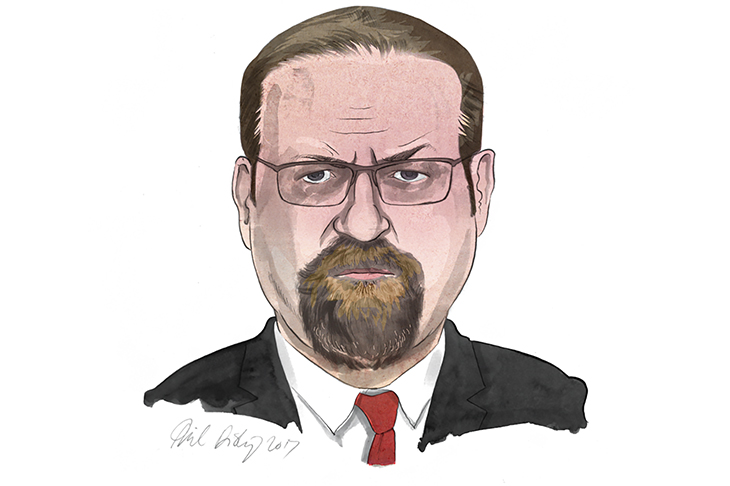
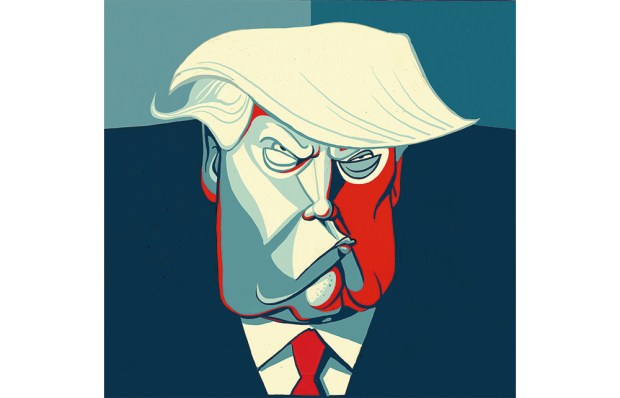
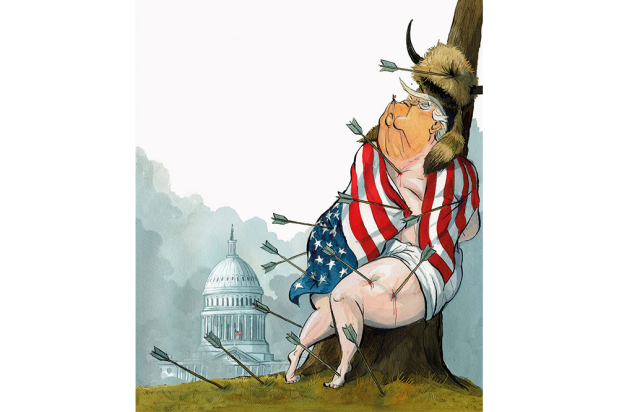
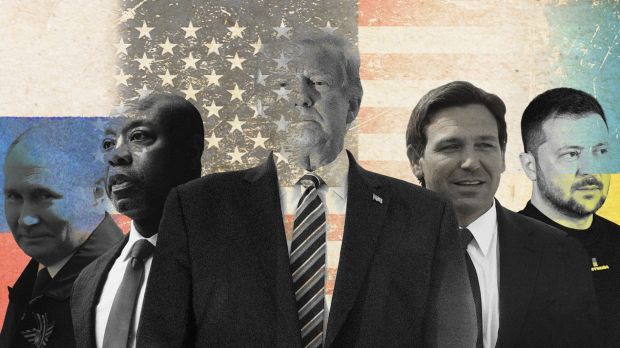
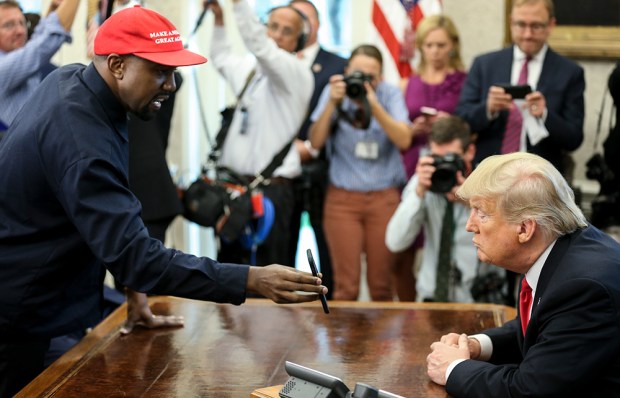
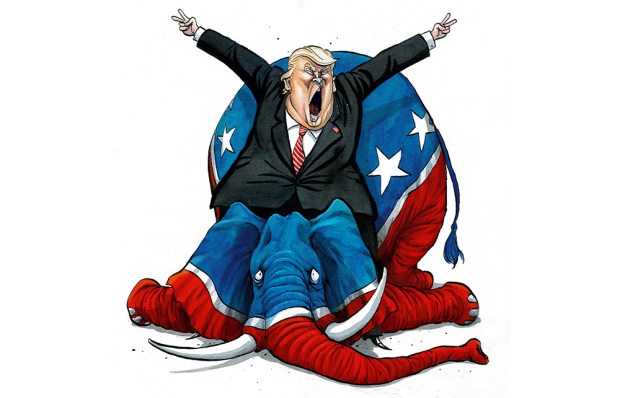
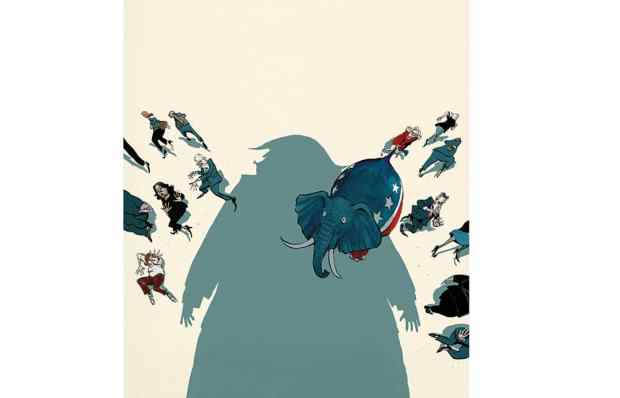






Comments
Don't miss out
Join the conversation with other Spectator Australia readers. Subscribe to leave a comment.
SUBSCRIBEAlready a subscriber? Log in